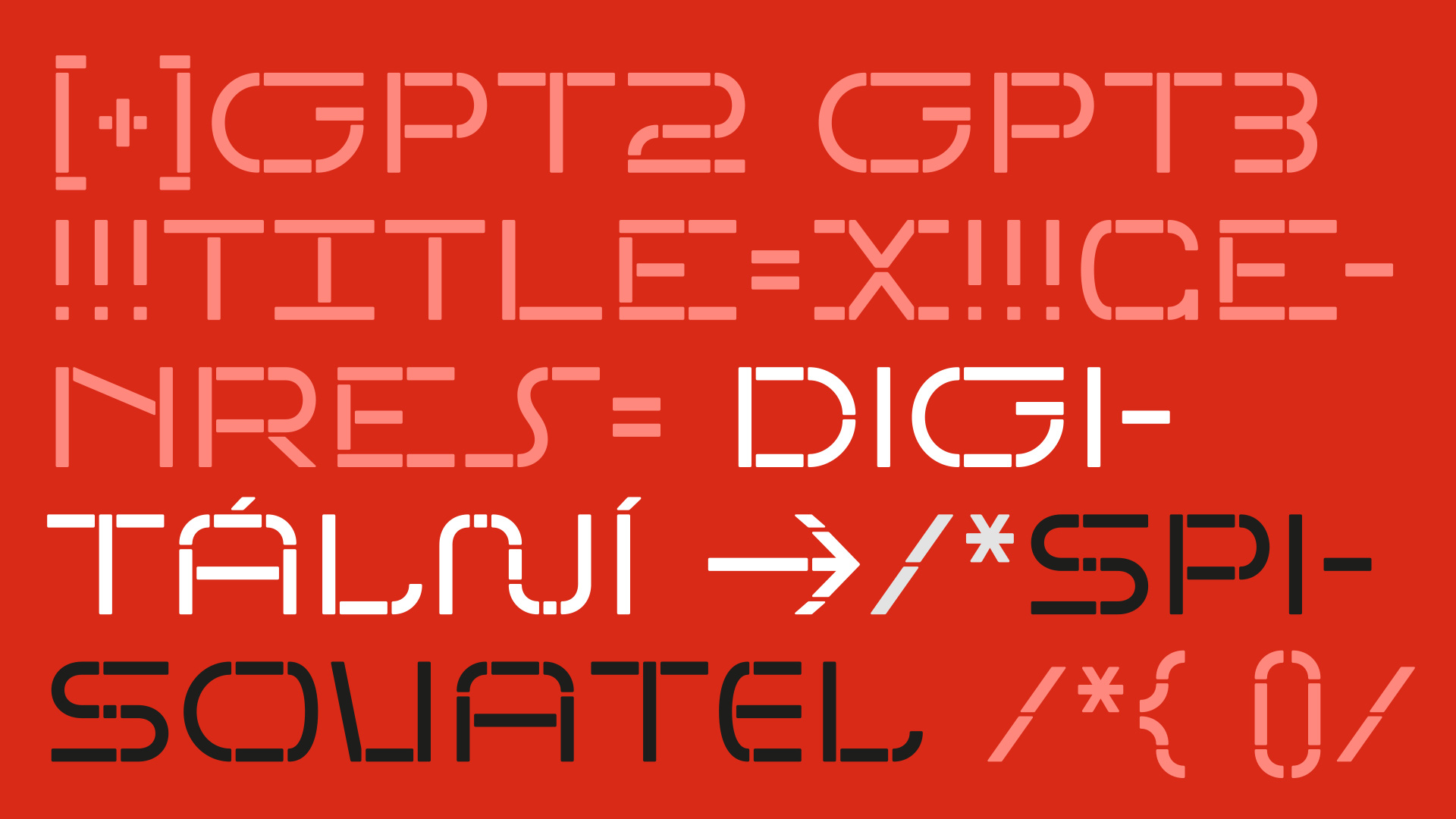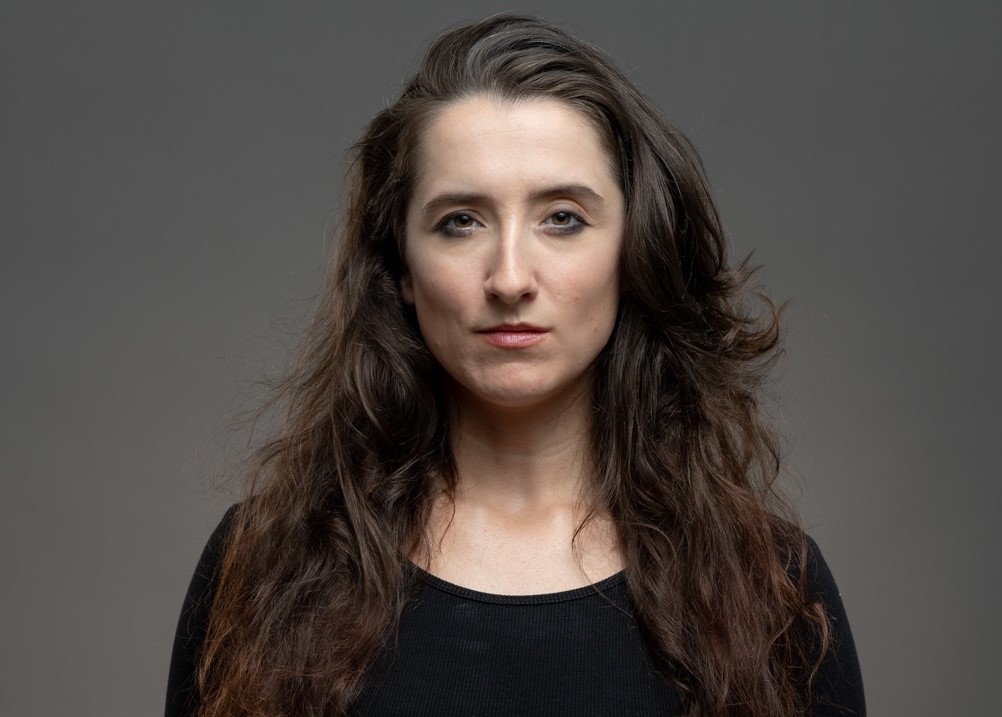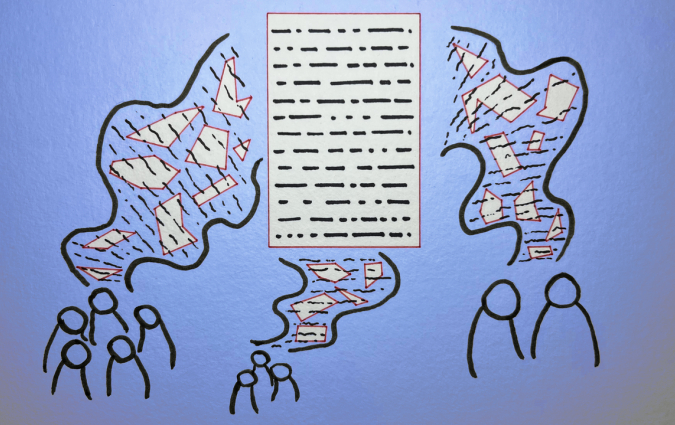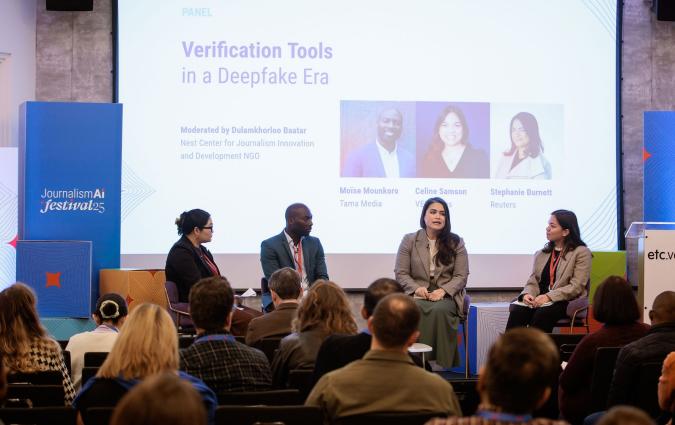When AI meets creative writing: an audio experiment at Czech Radio

The banner for Season 1 of the Digital Writer project.
This article is part of a five-part series on AI and the future of audio. The entire series, which includes pieces and short podcast episodes, can be found in this link.
Can AI write better short stories than a human writer? What if you paired up a human writer with an AI tool so they can write a short story together - would it be good? These are the questions at the heart of the Digital Writer project from Czech Radio.
Since 2020, the Czech public broadcaster has been experimenting with generative AI tools, particularly ChatGPT, to see what it would sound like when AI meets human creativity. The result has been four seasons of their ongoing podcast series called Digital Writer.
Listen to our 9-minute podcast episode
To find out more about the project, I spoke to Anna Vošalíková. She is the Chief Dramaturg in charge of digital content at Czech Radio. Our conversation has been edited for length and clarity.
Q. How would you describe Digital Writer?
A. Digital Writer is a project that aims to showcase the creative use of AI. It currently consists of three seasons. By the time this piece is out, it will have four seasons in total. Each season showcases the use of AI in a very different manner. In the first season, we generally use large language models GPT 2 and 3. In the second season, we've come up with a sort of collaborative model between actual human writers and AI to create short stories. The third season uses GPT 4 and the fourth season is going to be an entirely different creative format. So there's quite a lot going on. But overall, it's basically a series of short stories written for Czech Radio by AI.
Q. You guys started this back in 2020, way before the generative AI boom started. How did the project come about in the first place?
A. In 2019, we launched a platform called mujRozhlas, which is basically our little version of Spotify for Czech Radio content [something similar to BBC Sounds]. And within that platform, we used artificial intelligence in a number of ways. A year later, we came across a project called the Digital Philosopher and we were very curious about what AI could do for our listeners in terms of creativity. We wanted to see what could be done in the creative space.
Q. In 2020, you guys used a version of ChatGPT that is very different from the version that is out right now for the public. In terms of the technology that you use and have used, how has the project evolved from 2020 until now?
A. It evolved hugely. I'm very proud of the process that we're actually able to showcase within the project. So the first season was done through a fairly rudimentary API access to GPT 2 and GPT 3, which was mainly made available to the academic sphere.
If you take a look at all the different seasons and how they use artificial intelligence, and they all use GPT mainly, you can really see the development of the language model and you can see from the very beginnings when the stories were very simple, all the way up until now.
Not only has AI changed, but the way that we use it changed quite a bit as well. From a very simple use of prompting something and getting a result, all the way to a very intense co-creative process with the language model, the changes have been monumental. We were kind of toying around with the idea of having some sort of comparisons made in the last season, but we actually decided we were just going to go purely for GPT 4 because we felt the textual results we were getting were by far the best. The changes are phenomenal. We're very much enjoying the processes that come along with the changes.
Q. One of the things you mentioned is that, from season one to season two, you moved towards a more collaborative model between the AI technology and the writers. I was wondering, what kind of reaction did authors have when you approach them with this project?
A. If we wanted to continue with the project, it was absolutely paramount for us to bring something fairly new every season. We didn't just kind of want to have it all be the same. So when the first season was the success that it was, we decided to really go for something that would be a little bit easier on our listeners and really push the boundaries of how AI can be used in a more collaborative sense.
The authors that we approached were a very good mixture of people that were interested in collaborating with artificial intelligence, but also authors that were very sceptical towards the technology. We wanted the results of the second season to be very representative of how different people approach this creative process.
A part of the second season were interviews with the authors so they could themselves speak about the experience they had with working with AI. Some of them enjoyed it very much and I think it's fair to say that some of them really didn't like it. I think that was by far the most valuable season because it really showcased what could be done, how, and at what cost.
We had an author who is very much into sci-fi, and he really enjoyed it because he felt it was very conductive to his creative processes. We had an author who writes books for children and fairy tales, and she thought it was kind of fun and quirky. She didn't really feel like it brought too much to the table, but she enjoyed the collaboration. Then we had an author who simply thought it was gimmicky, she didn't enjoy it, she didn't view any value in it at all.
It's super important to really make the messaging very clear that this is technology that is meant for people who want to use it and it's not a technology that needs to be forced on anybody.

Q. You have been working on this project for over four years now. How do you think AI tools can be implemented in the creative process without stifling creativity?
A. In order to make sure that it doesn't stifle creativity, it's absolutely paramount that the people involved in the creative process want AI to be involved. If they want AI to be involved, there's pretty much no way the creative process can be stifled. If they don't want it to be involved and they feel that it's a technology that's being pushed on them or something that they're forced to work with, then the process is not going to be good and the results are not going to be good.
In my view, if you want to engage with AI in a creative manner, absolutely go for it, there's very little one can lose. You can brainstorm, you can really use it as just a prompter for any ideas that you might want to work on, it can help with creative blocks: there's really a wide variety of things that can help with. But again, if you feel that it is something that is taking away from your creative process in any way, shape or form, it's not going to be a tool that's going to be useful.
Q. This technology has been refined and changed so quickly since you launched. How do you envision these collaborations to go on or improve in the future?
A. That's something that we're constantly thinking about. When we try to figure out if we're going to do another season of Digital Writer, we find that the only reason why we would continue with the project is if the technology was so transformative to the creative process that it would bring something new to the listener.
This piece is the first instalment of a series on AI and the future of audio. You can find the entire series here.
As a public service news organisation, we have a huge responsibility towards our listeners and we have to make sure that whatever we bring is enriching. It's not just supposed to be fluff, it's not supposed to be just content for the sake of content. So, if the technology continues to develop, if the results that we're getting are constantly going to be improving, then we can continue with the project.
Q. The project has been a huge success. What has been the audience reaction so far?
A. Well, that's been super interesting. The first season received very mixed reviews. There were people who didn't even listen to the stories and they were immediately apprehensive about them because AI was involved and they were very much afraid of writers losing their jobs because AI is going to replace them, which I think we're proving time and time again that we're not there yet.
But there were also those who told us that the stories were very simple, but that they were okay. They were fun to listen to, and they enjoyed the experience. Then there were those who listened to them, and they thought they were absolute trash. All of those opinions are entirely valid.
The good thing to remember about this project is especially that the main goal is not necessarily to produce the best short audio stories that we can. We have human writers who write fantastic pieces and those are, in terms of quality, far superior to what we do at Digital Writer. However, it is also important to understand that one of the values of the project lies in the technology that is being used and the technology that is being showcased.
So, with the second season, the reception was way better, because humans were involved. So you had a human face to the project where popular writers who collaborated with Czech Radio on other projects could speak about it, they could talk about their experiences, and it was slightly easier to digest. With the third season, the reception was mixed again because we also included some fake podcast episodes, which stirred up some controversy, as well as fictional radio reports that were made by some of the most illustrious personalities of radio newscasting that we have. I think this is one of the very few projects at Czech Radio that thrives on negative reception because that is something that can push us to innovation.
In every email we send you'll find original reporting, evidence-based insights, online seminars and readings curated from 100s of sources - all in 5 minutes.
- Twice a week
- More than 20,000 people receive it
- Unsubscribe any time
signup block
In every email we send you'll find original reporting, evidence-based insights, online seminars and readings curated from 100s of sources - all in 5 minutes.
- Twice a week
- More than 20,000 people receive it
- Unsubscribe any time





